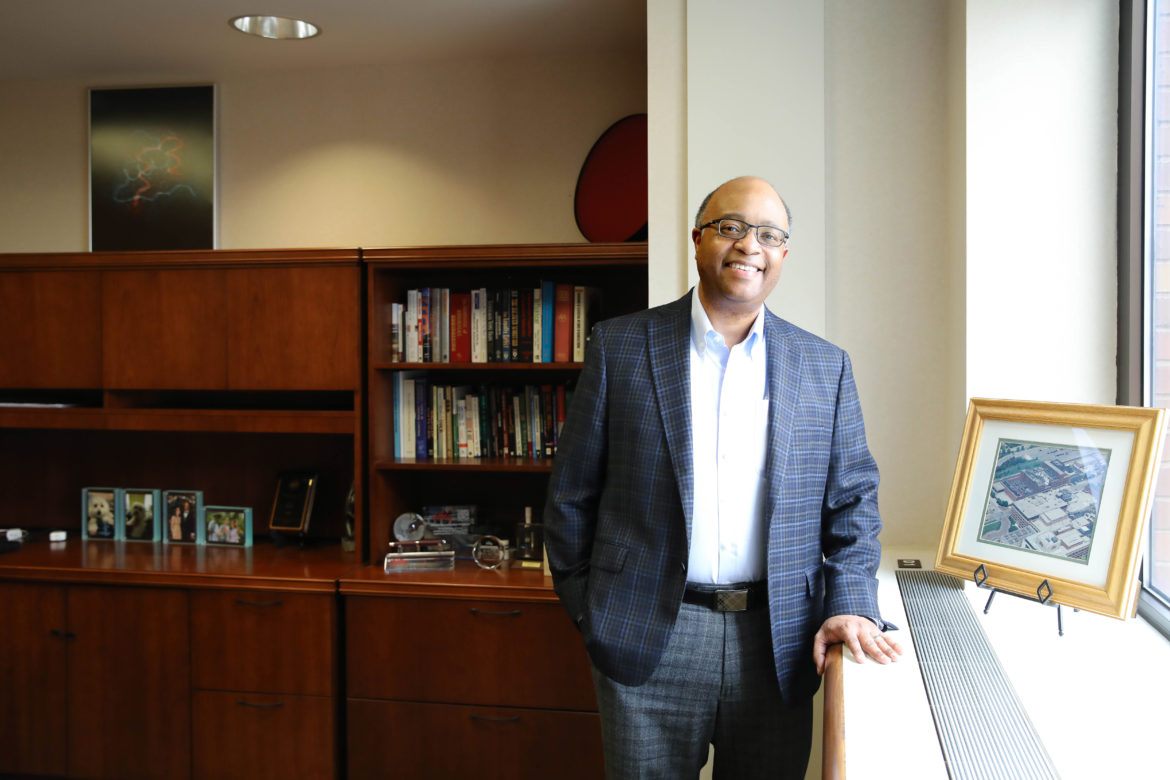By the time Darin Moody joined Eli Lilly and Company (Lilly) 33 years ago as a process-design engineer, he was used to being one of the first, and often the only, African American in many settings. Today, as a senior vice president in manufacturing at Lilly, he oversees a diverse, global organization of 3,500 people and multiple plants that make and package Lilly medicines.
It’s no surprise Darin was selected as one of Savoy’s 2020 Most Influential Black Executives in Corporate America. Darin and the rest of Lilly’s senior leadership team set the tone for a culture of diversity and inclusion, where everyone’s differences make a difference. That’s because true innovation requires top talent with different backgrounds, perspectives and ways of tackling problems. And to Lilly, inclusion means making sure that all employees are respected, valued and heard by teammates and leaders who care about one another—so everyone can deliver their best for the patients who rely on us. Read on to learn more in this Q&A with Moody:
Tell us about your path to Lilly.
I grew up in Southern Indiana, in a family that was very committed to education. In college, I studied chemical engineering at an elite institution where minority representation was less than 1 percent. It was great to be recruited by Lilly, a prestigious company close to home. In 1987, I was only the second chemical engineer ever hired by the company—and the first had been hired 17 years earlier. People looked at me as an anomaly and a curiosity.
What are some challenges you have faced?
One thing that has come up over the course of my career, is people questioning my qualifications—usually in a subtle way. When I would meet someone new, they would ask where I went to school, what my role is—and sometimes seem surprised when I tell them. And, like many of us—especially minorities in STEM fields—I’m often the only African American in the room. This rarely happens today, but not so long ago it wasn’t unusual to be asked if I was in the wrong meeting.
How have you navigated these challenges?
I’ve always tried to focus on my own internal expectations—that’s my north star. If my own expectations for my performance are higher than anyone else would apply to me, then there’s no reason to let expectations of others get inside my head.
People are more mobile in their careers today. What advice do you have for people joining a new company mid-career?
Lilly is always seeking top talent, especially in STEM fields. Manufacturing and quality are high-tech fields, and we’re not making widgets—we’re making medicine.
Coming into a new company with different ways of operating can be challenging. Two pieces of advice:
- Focus on learning the company’s culture so that you can identify the most effective ways to leverage your influence.
- Speak up, professionally and respectfully. Be prepared to persevere; it may take time to gain traction.
From a personal level, what have you enjoyed most about your career at Lilly?
The work is intellectually challenging and personally fulfilling, and I’ve had the chance to work with some of the smartest people anywhere. My career has taken me all over the world. We have manufacturing plants in many countries, and our workforce is quite international. Getting to know these colleagues and their cultures has helped me learn and grow as a person over the years.
How has Lilly changed?
Today, the diversity and inclusion culture at Lilly is very different from what it was three decades ago. We hold leaders accountable for finding the best talent from all backgrounds. We’ve done something really important by conducting internal research to understand the experience of women, African Americans, Asians and Latinos to hear from them what might be holding them back. We’ve implemented some systemic changes and we’re measuring progress. It’s having a real impact.
What do you do to give back?
I am very grateful to those who went before me, breaking down barriers and facing far greater challenges than I did. I am also grateful to so many people at the company of every background who have supported me in some way over the years. I feel an obligation to invest in the next generation. My focus is increasing opportunities for minorities to enter and prosper in STEM fields. As a Lilly executive, I sponsor or mentor many individuals while also working to influence staffing and talent development decisions. As a member of the Rose-Hulman Institute of Technology Board of Trustees, I work with leadership to increase the diversity of the student body, and I fund scholarships to help attract talented students.
I’m a believer in something Booker T. Washington once said: “Success always leaves footprints.”



